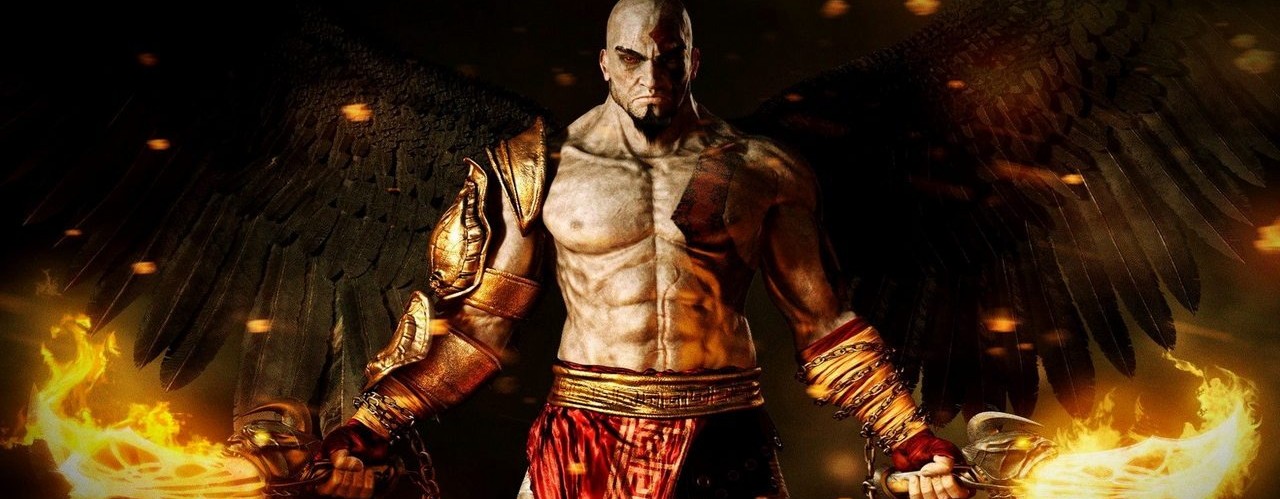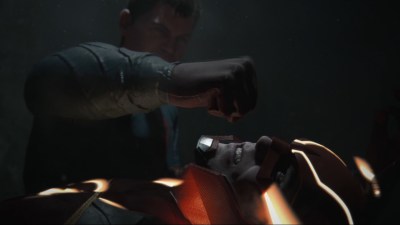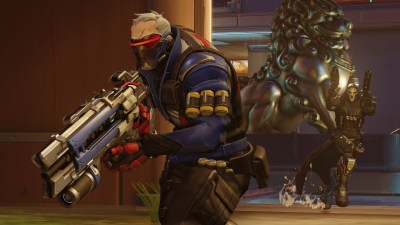From the moment it debuted in 2005, Sony Santa Monica’s God of War series established itself as a force to be reckoned with. Combining the over-the-top machismo of Frank Miller’s 300 with the spectacle of Clash of the Titans, David Jaffe’s team took a litany of well-known myths from ancient Greece, married it with a combat system inspired by Devil May Cry, and let players loose to cut a bloody swathe of death and destruction.
From the first moment you don the famous blades of the lone Spartan warrior we’ve all came to know and love, you instantly feel like a bad ass. Armed with his trademark chain blades and covered in the ashes of his dead family, from the moment you meet Kratos, it’s clear that you’re going to be in for a wild ride.
And the series didn’t disappoint.
The first game set Kratos against Ares, the God of War from Greek mythology, after being tricked into killing his own family. Thus Kratos begins his quest for bloodthirsty revenge, slaughtering all who get in his way. After finally killing Ares, Kratos takes his place among the pantheon of Gods, but he’s still haunted by the loss of his family.
It isn’t until 2007’s God of War II that Kratos’ vendetta against Zeus truly begins. Stripped of his powers, murdered and cast into the Underworld, Kratos sets himself on a mission to kill Zeus and any who stand in his way.
Slaying legendary Gods one after the other with ease, and with a bellowing howl shuddering the heavens, the ashen warrior tears through a veritable who’s-who of Greek myth. Hercules, Poseidon, Persephone, harpies, gryphons and more - all fall victim to Kratos’ wrath.
Finally, having slaughtered your way through nearly every figure in Greek mythology, and with multiple plagues ravaging the land, the final battle is close at hand.
Then you meet Pandora. She reminds you of your lost daughter, with her charisma and naive innocence. Having nothing left in this world to care about, Kratos can’t help but develop an attachment for her - and after killing her creator, he feels responsible for her safety. So when she finally makes the ultimate sacrifice to allow Kratos to take on Zeus, all of the rage and fury he had saved up through the course of three games worth of carnage erupts in an explosion of sound and fury unlike anything seen in the series so far. Having to wait that long to finally confront Zeus only makes the final battle all the more satisfying.
Thus ensues a long and brutal battle of pummeling fists, swinging blades, and lightning bolts - ranging from the chamber containing Pandora’s Box to the Heart of Gaia and bringing the series full circle. Everything in the God of War franchise has led up to this moment. You’ve slain Gods and Titans alike, but now you were going toe-to-toe with the ruler of Mount Olympus, whom even the Titans fear. Despite this, Kratos does what he does best: he beats the living hell out of Zeus.
You call upon lightning bolts, taming and honing them into your blade, as Zeus lies exhausted against the Titan Gaia’s heart. After finally impaling Zeus in the stomach with the very blade he did the same to you with - killing the mother of the Titans in the process - then punching his dead corpse in the face until the entire screen turns red with his blood, you want to drop your controller, howl into the shuddering heavens and scream “I AM THE GOD OF WAR!!!” so loud that you hear your neighbor drop a plate in fear and cause every dog within a mile radius to bark excitedly in approval.
God of War III could have ended right there, but Sony Santa Monica wasn’t quite done. Determined not to be defeated, Kratos is suddenly killed by the ghost of Zeus. But being the legendary God-killing bad-ass he is, Kratos’ soul returns to his corpse and defeats Zeus all over again.
Finally, it’s over. Olympus is in ruins, the Pantheon is all but eradicated, and Kratos’ quest for vengeance is at an end. As tornadoes and plagues of locusts ravage the land, Athena appears before him and demands that he restore her power so that she can rebuild the world again. Of course, Kratos refuses, and in one final act of spite, he plunges his own blade into his chest.
Kratos’ death at the end of God of War III wouldn’t be the last we saw of the pale Spartan, of course - Ghost of Sparta on the PSP was released in 2010, while Ascension came out in 2013. Both games served as prequels to the trilogy, but neither managed to surpass the bar set by the main trilogy. Meanwhile, a post-credit scene in God of War III hints that Kratos - an old hand at cheating death - in fact survived his own attempted suicide.
God of War III took the high bar set by its predecessor and raised it even further, using the power of the PlayStation 3 to take the series’ trademark scale and spectacle to ridiculous new heights. Whether or not we ultimately see his return in the almost-inevitable God of War IV is up for debate; but if he does return, then whoever takes the reigns of handling his return will have their work cut out for them.


